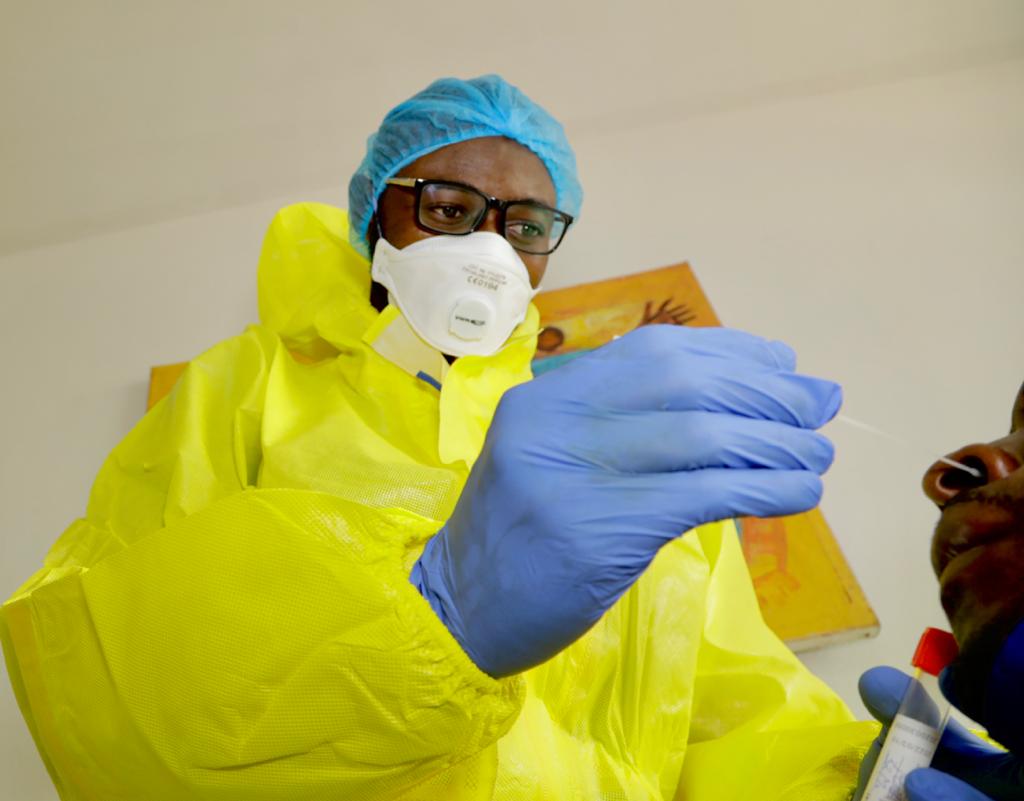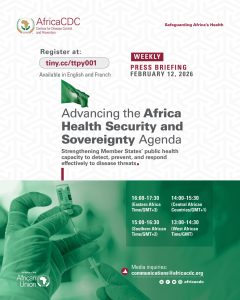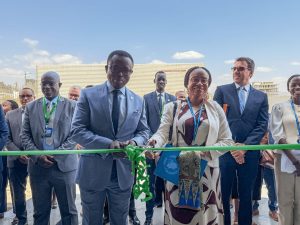Dakar, Senegal,17/08/2023 To accelerate access to diagnostics in the continent, Africa CDC in partnership with key partners have launched the Africa Collaborative Initiative to Advance Diagnostics (AFCAD). The AFCAD will address four key objectives: Promote local manufacturing of diagnostics, map, identify and build capacity of diagnostic centres of excellence (the Africa Biobanking Network), facilitate harmonization of regulatory processes and requirements, and global market negotiation. The AFCAD initiative, to bring the needed change in access to diagnostics, has to be supported by regional and continental harmonization of the regulatory processes for medical devices including Invitro Diagnostics (IVDs).
In recognition of the need to strengthen the capacity for regulation of medical products in Africa, and the harmonisation of medicines regulatory systems as a foundation for the establishment of a single regulatory Agency; the AU Executive Council through its Decision {EX.CL/Dec.857 (XXVI)} of January 2015 endorsed the establishment of the African Medicines Agency (AMA). AMA will oversee the continental regulatory harmonization of medical products such as medicines, vaccines, medical devices including IVDs and is expected to be a significant boost for access to medical counter measures in Africa. The African Medical Device Forum (AMDF) which is the Technical Committee under the Africa Medicines Regulatory Harmonization (AMRH) program of Africa Development Agency-New Partnership for Africa’s Development (AUDA-NEPAD) is positioned to operationalise the AMA in the domain of medical devices and IVDs.
Africa CDC is supporting the AMRH programme through AMDF to close the gap between the laboratory and regulatory work streams for IVDs. Africa CDC will provide this support by mapping and building capacity in laboratories that will serve as centres of excellence of validation of IVDs (biobanking networks) and establishing a Diagnostics Advisory committee (DAC). In line with this, Africa CDC organized a joint meeting among the AMDF Technical Committee, representatives of AMRH program and the newly formed DAC from August 15-17, 2023 in Dakar, Senegal. In this meeting, the diagnostic Advisory Committee composed of 15 well experienced laboratory experts representing all regions of Africa and few partners was officially established and Terms of Reference (TOR) endorsed. “Access to quality assured IVDs remains a major challenge in Africa significantly impacting the disease control and prevention efforts”, said Dr. Yenew Kebede, Head Division of Laboratory Systems at Africa CDC. “The establishment of the DAC is an important milestone in the implementation of comprehensive strategies outlined under the AFCAD initiative”, he added.
In this meeting, the plans and progresses in the operationalisation of the AMA and strategic objectives and activities of AMDF technical committee were presented and reviewed. The TOR of the DAC was aligned with the AMDF and the AMRH programme. “The collaboration between AMRH program under AUDA-NEPAD and Africa CDC in the area of harmonization of regulatory processes for medical products including IVDs is a testimony of unity of purpose of the Africa Union agencies to effectively address bottlenecks to increase access to medical counter measures for better health outcomes”, said Chimwemwe Chamdimba, Head of AMRH program at AUDA-NEPAD. “The establishment of DAC in this joint meeting will complement our effort in establishing harmonized processes for regulation of medical products”, she added. Dr. Paulyne Wairimu, chair of the AMDF technical committee, said “the establishment of the DAC is a welcoming development and it is a significant input in the work of the AMDF technical committee”. She continued, “the DAC will support the mapping of centres of excellence for evaluation of IVDs, provide technical support during evaluation and create list of diagnostics for priority diseases and facilitate the registration of the products by national regulatory authorities”,
At the end of this meeting, Africa CDC and AUDA NEPAD’s AMRH programme through the AMDF outlined seven key next steps as a continental effort to accelerate access to diagnostics:
- Develop a list of diagnostics for priority diseases in Africa for evaluation and regulatory approval
- Establish an African System under AMRH and through AMDF for assessment and certification of IVDs
- Support African NRAs to register diagnostics recommended by the AMRH, AMDF and WHO Prequalification process and create list of AU suitable/certified diagnostics for Africa priority diseases
- Support mapping, identification, and capacity building of a network of accredited laboratories for the validation of IVDs in Africa
- Promote a robust African Union procurement mechanism for priority diagnostics in Africa
- Expand global price negotiation efforts by the African Union
- Support existing efforts in creation of an enabling environment for local manufacturing of diagnostics in Africa.
The DAC will play pivotal role in advancing the above key steps and contribute its part in the advancement of diagnostics for disease prevention and control efforts.
About the Africa Union Development Agency – New Partnership for Africa’s Development (AUDA-NEPAD)
The African Union Development Agency – New Partnership for Africa’s Development (AUDA-NEPAD) is the development Agency of the African Union responsible for coordinating and executing priority regional and continental projects to promote regional integration towards the accelerated realisation of Agenda 2063. The AUDA-NEPAD is leading the implementation of the Africa Medicines Regulatory Harmonization (AMRH) Program aimed at improving access to quality, safe and efficacious health products and technologies to the people of Africa.
For more information, visit https://amrh.nepad.org/
About Africa Centres for Disease Control and Prevention (Africa CDC)
The Africa Centres for Disease Control and Prevention (Africa CDC) is a continental autonomous Public Health agency of the African Union which supports Member States in their efforts to strengthen health systems and improve surveillance, emergency response, prevention and control of diseases. For more information, visit https://africacdc.org/







